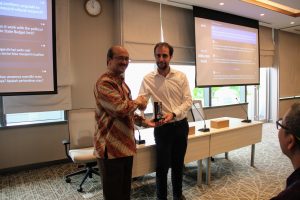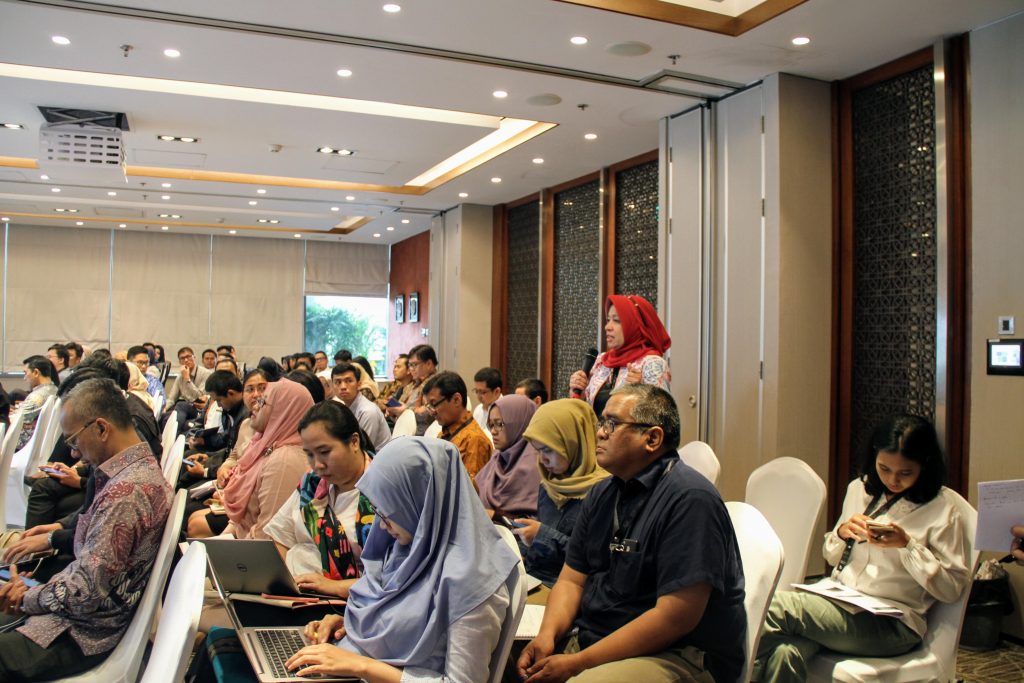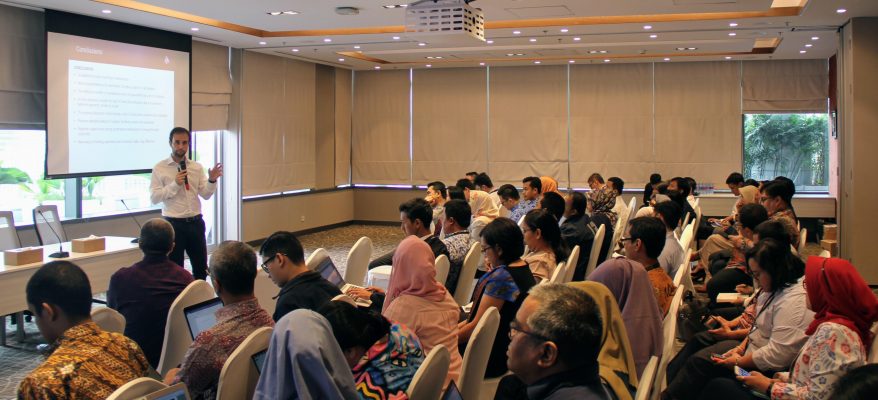Solvere Managing Partner Jose Cordovilla had the pleasure to deliver a knowledge-sharing session to the Indonesian Government. A broad representation from different institutions, including BAPPENAS, the Ministries of Finance, Public Works, Health, Transportation, Telecommunications and other, attended the event. The session took place at the IIGF offices in Jakarta, on 21 May 2018, and it was organised jointly with our local partner Muhammad Saifullah of Adhikari.
The Joint PPP Office of the Government of Indonesia kindly invited Solvere and Adhikari to deliver a knowledge-sharing workshop with the following objectives:
- To review the basics of availability payment (AP) mechanisms in PPPs
- To share experiences in the design and implementation of these mechanisms in other countries, mainly in Europe and Latin America.
- To create a discussion forum to address questions and generate ideas

The session was very successful, with full attendance from a wide variety of Government officers and a very dynamic debate with the audience. The key takeaways from the workshop were:
- APs are regular, guaranteed payments from the Public Partner to the Private Partner in exchange for the availability of an assets and/or a service.
- APs are usually paid monthly or quarterly, and adjusted based on the functional availability of the service and the performance of the operator, measured by a number of Performance Indicators and the corresponding payment adjustment mechanisms.
- AP in PPPs is a recent instrument. It only started in the late 1980’s with the UK’s PFI programme and there is limited real experience about its actual benefits and challenges.
- AP is similar to obtaining a loan and paying the instalments regularly, but instead of receiving money upfront the Government receives an asset or a service that is ready to be used.
- AP remunerates the Private Partner for retaining Operational Risk (excluding Demand Risk), typically combined with Construction Risk.
- The Public Partner retains Demand Risk in part or in full. Lately there are examples of hybrid models, like the Peru Metro Lima Line 1 expansion, where the model is a combination of minimum demand guarantee + availability payment.
- AP is a mitigation mechanism for commercial risk through contractual arrangements (different to credit enhancement mechanisms and also different to financial support like VGF).
- AP is, in practice, very difficult to design and manage and requires management capacity and strong governance mechanisms to ensure the right outcomes.
- AP is not adequate if the Government cannot guarantee the transfer of operational risk and monitor and evaluate the efficiency gains.
Solvere would like to thank the Joint Office of PPPs, especially Ibu Novie Andriani, for inviting us and treating us with such great hospitality.
For further information, please contact:
jose.cordovilla@solvere.es

